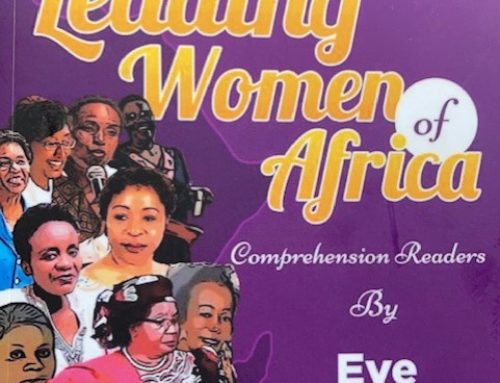i have just finished reading Nadia Bolz-Weber’s second book, Accidental Saints: Finding God in all the Wrong People and i highly recommend it to everyone. Especially people who are not Christian. i really think this is a book you might enjoy because of the heart, compassion and just basic realness of this lady.
The first part i shared dealt with the question of Who Pastors the Bishop? and this extract is from a chapter titled, ‘Mary, Mother of our Lord. While you really need to read the whole chapter [and the book – buy this book!] to do it justice it basically looks at the contrast between two ways of presenting the gospel.
Early on she talks about an encounter with a youth pastor at a young age and includes this paragraph:
“How would you be living?”, the man with the floppy Bible and wet boots asked us, “if you really believed?”
This type of teaching was standard fare at Christian youth retreats across the country. “Good” behaviour equals godliness. But as I sat there, distracted by the evaporating footprints on the wooden floor, I kept thinking about Cassie’s Mary calendar and wondered if the mother of Jesus was considered “good”. After all, she got knocked up before she got married.
Then later in the chapter she speaks about the second way of looking at this and her changed perspective of Mary in particular:
When I eventually returned to the Christian faith, I did so with a passion for and devotion to Mary in tow – which eventually demonstrated itself in Virgin Mary belt buckles, tattoos, and medallions hanging from the rearview mirror of my car.
I may have found inspiration in the form of the Blessed Virgin Mary, but looking around my new Lutheran home, I realised that many mainline Protestants didn’t really know what to do with Mary. It’s like Roman Catholics have dibs on her and we just kind of stand by, only dusting her off once a year to be the pretty young girl in the nativity set and then pputting her quickly away before she embarrasses any one. Which is sad because there are so many reasons to love Mary.
She has been loved for centuries for being “good,” the docile picture of purity and virginity. As a matter of fact, some church doctrines have been written to say that unlike other women, Mary was born without sin. Which, of course, implies that God would never choose to make God’s home in the womb of an actual woman, since we know that actual women are sinful, fleshy temptresses. So Mary had to have been a special one-off who was really, really different from all the other tramps out there. And so it was her really, really differentness from actual women that earned her God’s favour.
In contrast, Mary has also been loved by leftists in the church as a sort of first-century teenage female Che Guevara, since in Luke 1 she sings the Magnificat, a song that includes images of God overthrowing the social order, feeding the hungry, and sending the rich away empty-handed. I like this image of Mary as a political revolutionary, even while I am sure it’s slightly misguided since the Prince of Peace’s mom wouldn’t be a guerilla with a side arm strapped to her leg and a Kalashnikov in her blessed arms.
Others, folks not drawn to religion, or those who, like atheists, are largely repelled by it, seem disturbed by the irrationality of the whole thing. For them, Mary, and especially the Virgin Birth, is a fairy tale for the gullible, something ignorant people believe in because they haven’t learned to use human reason or listen to NPR as much as they should.
I just don’t feel satisfied with any of the above. But I want a way to view Mary and even the Christmas story itself without sentimentality or cynicism.
So… here we have a girl, likely between thirteen and fifteen years of age. She’s a peasant and she’s engaged to a pretty religious guy. An angelic figure visits her saying that she’s found favour with God and is going to conceive a son by the Holy Spirit and that this child will be holy and will sit on David’s throne – none of which seems terribly likely to be true, given her socioeconomic status.
When we think about the Annunciation, the scene between the angel Gabriel and Mary and how he told her those outrageous things, we think of the faith it took for her to believe that the Holy Spirit really would knock her up and that her son, the illegitimate child of an insignificant girl, really would have a throne and a kingdom. But I wonder: If I had been in her place, which would have been harder for me to believe?
The part about being knocked up by God and giving birth to a king? Or the part where the angel said I was favoured? I mean, if an angel came to me and said, “Greetings, favoured one,” I’d be like, “You’ve got the wrong girl.” There’s no way I would trust that the angel meant me, You know, since I’ve never managed to have my life look the way the youth minister implied it should in order to earn God’s favour.
What would you look like if you really believed?” said the man with the floppy Bible. As a twelve-year-old, I believed. At least I thought I believed, but no matter how hard I tried, I just never seemed to be able to make myself something worthy of God’s favour. Perhaps if I had a personality more naturally disposed toward clean living and clean speaking and clean thinking I could have pulled it off, but as it was I was just me and all the guilt-tripping in the world never seemed to change that. So instead I paid attention to the snow and the warmth of my cheek. I tuned out the youth minister in wet boots preaching to me about how my life should look. Because I just couldn’t muster up a yes to what seemed like God’s conditional maybe toward me.
But here’s where Mary had some real chops. She heard outrageous things from an angel and said, “Let it be with me according to your word.” (Luke 1.38) Mary trusted the word from the angle, telling her that she was favoured. And maybe that trust is what made her favoured.
We don’t know the details of her life, but I like to think that she was a normal girl with all the struggles and inconsistencies that come with being a normal girl. Maybe the really outrageous act of faith on Mary’s part was trusting that she had found favour with God. I may feel used to the idea that if I live a certain kind of life, I can make myself worthy of God. But what if God’s Word is so much more powerful than our ability to become worthy of God? I mean, not for nothing, but if God can create the universe by speaking it into existence, then I think God can make us into God’s beloved by simply saying it is so. This, it seems to me, is a vital and overlooked miracle of the Annunciation story.
We have no idea what Mary was like before the angel visited her, but here’s what I’m thinking: I seriously doubt that she made herself into a girl whom God could favour because she took the advice of her youth rabbi and lived the way she should. If the way God seems to favour prostitutes and tax collectors and adulterous kings over the smug, righteous, and powerful is any indication, then I think it’s safe to assume that it is God’s nature to look upon young peasant girls with favour. Because God’s just like that. At least that’s who we see God consistently acting in the Bible.
What that youth minister at the retreat essentially was asking was how “good” we would be if we felt awful enough about how God had to kill Jesus because we were bad. But I didn’t realise that until my parishioner Stephen said something years later.
Stephen looks like an aging movie star, is the VP at a Fortune 500 company, is a statewide elected official, lives in a loft downtown, and is still a hot mess of low self-esteem issues. I had recently preached a sermon about the love of God, and later that week as Stephen and I sat in the basement of a local coffee shop, he said, “Man, I wonder what my life would look like if I really believed this? How would my life be different if I was not scared, if I really believed that I am fully and totally loved by God?” Then he added, “No wonder we have liturgy and Eucharist every week. I have to hear this at least that often.”
When Stephen asked, “How would my life be different if I was not scared and really believed I was loved?” I was reminded of the youth pastor’s similar, yet completely different question. One question had to do with trusting God’s love; the other had to do with trying to become worthy of God’s love.
There is a reason Mary is everywhere. I’ve seen her image all over the world, in cafés in Istanbul, on students’ backpacks in Scotland, in a market stall in Jakarta, but I don’t think her image is everywhere because she is a reminder to be obedient, and I don’t think it has to do with social revolution. Images of Mary remind us of God’s favour. Mary is what it looks like to believe that we already are who God says we are.’
Seriously, get hold of a copy of this book. You do not have to agree with every single point Nadia makes or every aspect of how she lives her life, but she makes enough good points and lives enough ways for us to learn a lot from her and her community of sinners and saints.






Leave a Reply